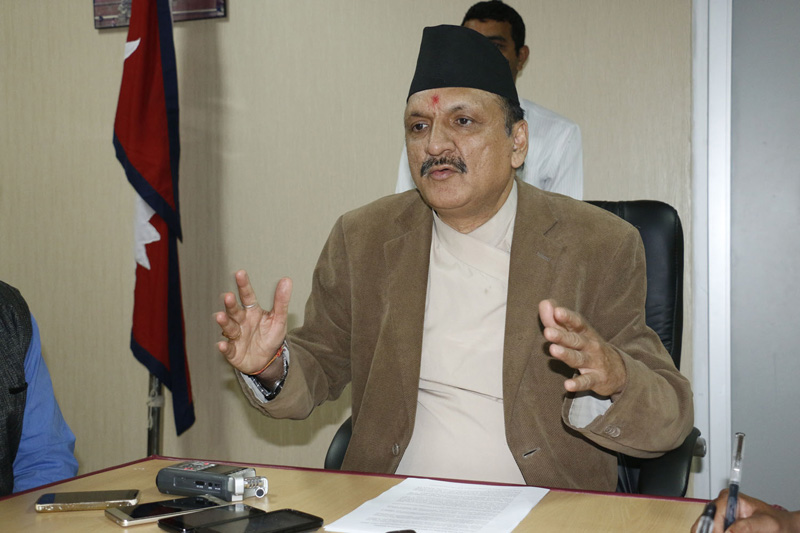Mahat’s call for ‘new foreign policy’ gets mixed responses
Kathmandu, December 31
Foreign Minister Prakash Sharan Mahat recently created a stir in diplomatic circles when he said he would form a team to formulate a new comprehensive foreign policy.
He said a timely ‘review’ was needed to match our external policy and conduct in accordance with the changed domestic as well as global contexts.
Mahat recently told The Himalayan Times he wanted to frame a foreign policy paper so that successive governments could uphold it and execute diplomacy accordingly.
His remark sounds encouraging. But his proclamation has roused mixed reactions among foreign policy analysts and practitioners.
Mahat was not the only foreign minister to float such a scheme. Almost every foreign minister since the April uprising of 2006 had announced the need to frame a new foreign policy charter.
Two such documents were drafted in the last decade.
Does foreign policy have to be formulated under every new government?
“No,” said a former foreign secretary. “Foreign policy should be contextual. It’s not like domestic policy which is subject to review after every change of guard.”
Nishchal Nath Pandey, director for Centre for Sough Asian Studies, echoed the same thought. He suggested that the government must cut down on ineffective diplomatic outposts and strengthen vital missions with more financial and human resources.
Right after the second People’s Movement of 2006, the Murari Raj Sharma-led committee submitted a report suggesting some foreign policy changes in the changed context. The report was never executed.
Later in 2011, an inter-party parliamentary taskforce was set up to draft an all-acceptable foreign policy. Unfortunately, the document fell short of being accepted.
“The document couldn’t be owned by and executed because some bizarre and insensitive things were included in it,” a senior MoFA officer said. “The policy paper was drafted more on a whim rather than based on serious consultation and homework among relevant stakeholders.”
Rajan Bhattarai, a CPN-UML lawmaker and member of the Eminent Persons Group on Nepal-India Relations, concluded that despite earlier attempts to formulate an all-acceptable foreign policy document, it never happened.
“What our country needs is an all-acceptable foreign policy charter, which is still lacking,” he told The Himalayan Times. “But the main issue is whether we are ready to draft such a policy.” He suggested that all relevant stakeholders be brought on board and consulted.
Former ambassador and the prime minister’s foreign relations expert Dinesh Bhattarai also said it could be an opportune time to ‘review’ our external policy, particularly in the changed global context that includes a global upsurge of nationalism and protectionism; post-liberalism and geo-political changes.
The global order and geopolitics is changing. It could be an opportune time to review our external policy,” Bhattarai said, but asked, “Do we have adequate human and financial resources to review the existing policy and come up with a better one?”






